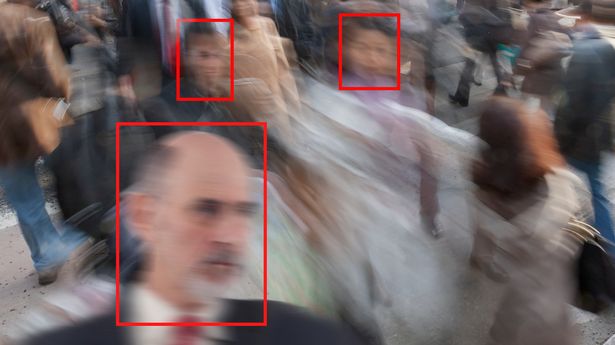The UK is "veering dangerously close to becoming a police state" because of facial scanners being used in high streets, MPs have heard.
Calls have been mounted for live facial recognition technology to be halted amid questions over accuracy and privacy. The software - currently being deployed in London, South Wales and Essex - allows officers to scan the faces of passers-by and check them against watchlists.
Several MPs raised concerns about software misidentifying innocent members of the public - particularly Black, Asian and minority ethnic groups. Labour MP Bell Ribeiro-Addy said: "We're veering dangerously close to becoming a police state with levels of surveillance that would only be deemed acceptable in the most autheritarian police states. It's not a matter of 'those with nothing to hide have nothing to fear', it's a matter of our basic privacy."
She pointed to research by campaign group Big Brother Watch which found 89% of facial recognition alerts to date wrongly identified members. Tory Shadow Home Secretary Chris Philp said current software is far more accurate.
Ms Ribeiro-Addy told a Westminster Hall debate: "People of colour are already disproportionately stopped and searched and the use of potentially flawed technology will only increase the rate at which ethnic minorities are stopped, further damaging trust in police in this community."
And she questioned effective it is, stating: "As far as I've been made aware it hasn't produced a substantial number of results. Our constituents are effectively being placed under constant surveillance and the notion of their presumed innocence has effectively been undermined."
MPs heard that vans with the specialist facial scanners are able to scan people in crowds. If they are not on a police watchlist, their biometric data is deleted within half a second.
If they do match, a police officer approaches them and asks them for ID. The technology - which identifies people by measuring dozens of features on their face - has been controversial, with campaign groups demanding it is withdrawn.
Lib Dem Bobby Dean said: "It's clear from the room that there's many, many doubts. We should think about halting the use of this technology until we've cleared up those doubts."
Policing Minister Dame Diana Johnson said the Met Police made over 460 arrests between January and November using the technology. South Wales Police made 12 arrests after 20 operations in that time, she said.
Dame Diana said: "This Government wants to take time to listen and think carefully about these concerns that have been raised as well as how we can help police use live facial recognition in a way that keeps the public safe."
Mr Philp, an advocate for the technology, said the National Physical Laboratory had found there is "no statistically significant difference across racial groups". He said most of the public think its use is a "reasonable trade-off" when it is explained to them.
